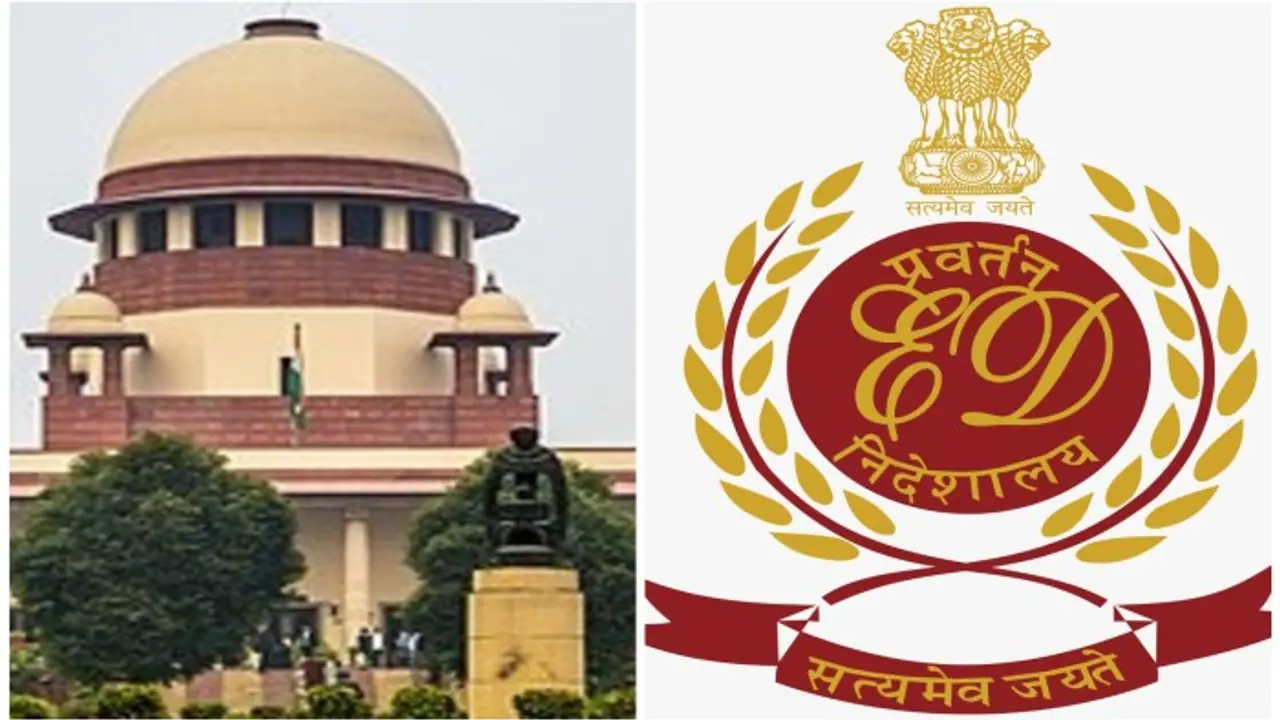The Supreme Court stayed ED’s probe into TASMAC, saying the agency overstepped its powers. It questioned the lack of a predicate offence and slammed ED for violating the Constitution by targeting a government-run corporation.
In a big development, the Supreme Court on Thursday strongly criticised the Enforcement Directorate (ED) for raiding the Tamil Nadu State Marketing Corporation (TASMAC) office. The top court said ED was going beyond its powers and violating the Constitution, reports Bar and Bench.

The ED had carried out raids at TASMAC’s headquarters in Chennai from March 6 to 8. These raids were part of a money laundering probe linked to a Rs 1,000 crore scam. The ED believed TASMAC officials were involved in overpricing liquor, giving tenders unfairly, and accepting bribes. The agency’s investigation was based on over 40 FIRs filed earlier by the State government and TASMAC itself.
However, the DMK-led Tamil Nadu government said the ED had no right to take such action against a state-owned body. It challenged the raids in the Madras High Court, which refused to stop the ED. So the State government approached the Supreme Court.
The Supreme Court, led by Chief Justice BR Gavai and Justice Augustine George Masih, questioned how ED could treat the entire corporation as a criminal. “How can there be a criminal case against a government company?” the Chief Justice asked. “Your ED is crossing all limits.”
The court then stayed the ED’s probe into TASMAC and asked the agency to explain the 'predicate offence', the basic crime that must exist before a money laundering case can be made. The Bench made it clear that ED cannot step in unless there is such an offence.
SC also asked ED to file a detailed reply and said it would hear the case further after that.
This case could set an important precedent on how far central agencies like the ED can go when investigating state government bodies.
The Tamil Nadu government is locked in a legal tussle with the Enforcement Directorate (ED) over recent raids at the headquarters of TASMAC, the state-run liquor corporation. The case has now reached the Supreme Court, which has stayed the ED’s actions and asked the central agency to justify the legal basis of its probe.
The flashpoint emerged after the ED conducted raids at TASMAC’s Chennai headquarters between March 6 and 8. The agency claimed it was acting on several FIRs involving over ₹1,000 crore in alleged corruption, including bribery, inflated liquor prices, and tender manipulation. The ED invoked the Prevention of Money Laundering Act (PMLA) to justify its probe.
However, the Tamil Nadu government raised serious objections. It accused the ED of harassing public servants, overreaching its powers, and violating the constitutional rights of employees. The state argued that the ED’s actions were politically motivated and aimed at undermining a democratically elected government.
The first legal round went in ED’s favour. On April 23, the Madras High Court dismissed petitions filed by the Tamil Nadu government and TASMAC challenging the raids. The court ruled that the ED was within its rights to proceed under the PMLA and found no merit in TASMAC’s claim that its employees were unlawfully detained or harassed. The High Court stated that temporary detention during surprise raids was a procedural necessity, not a rights violation. It described the claims of harassment as an afterthought.
Before this, on April 4, the Tamil Nadu government had sought to move its challenge against the ED’s probe from the Madras High Court to a High Court outside the state, citing concerns of bias. The Supreme Court was approached for this transfer. But on April 8, the state withdrew its plea, and the apex court dismissed it as withdrawn.
With the High Court refusing to stop the ED probe, the state government took the battle back to the Supreme Court, this time challenging the constitutional validity of the ED’s raids. As of May 22, the Supreme Court stayed the ED’s action and strongly criticised the agency, asking it to justify the money laundering case and explain whether a predicate offence existed.
This legal battle is being closely watched as it touches on the balance of power between state and central authorities, and the limits of federal investigative agencies when probing state-owned institutions.


